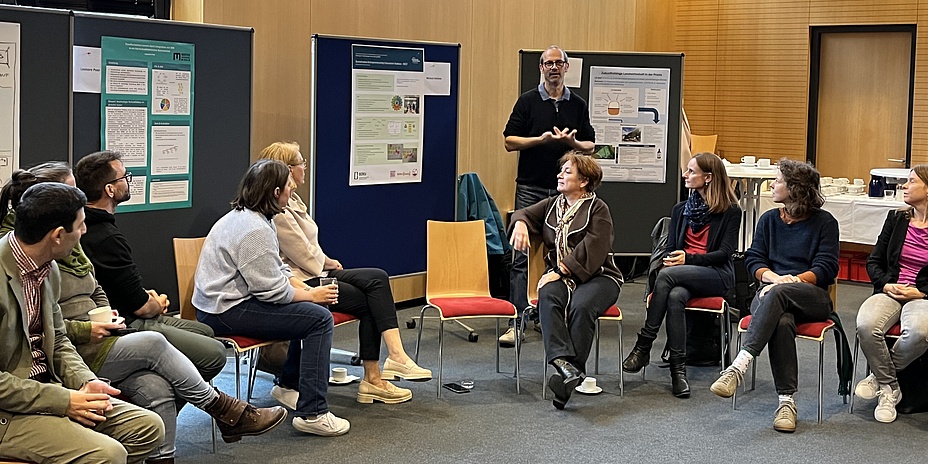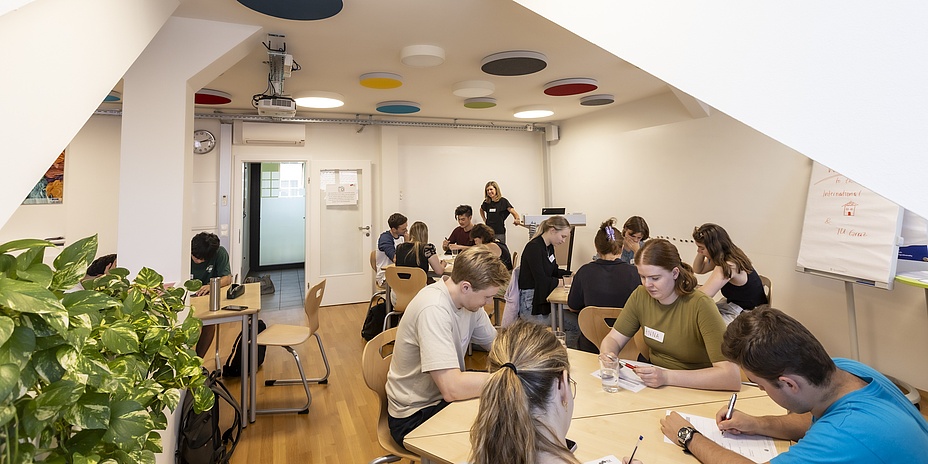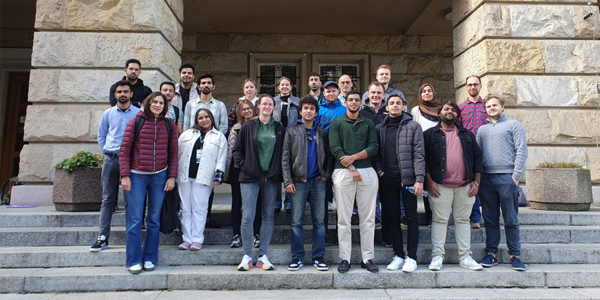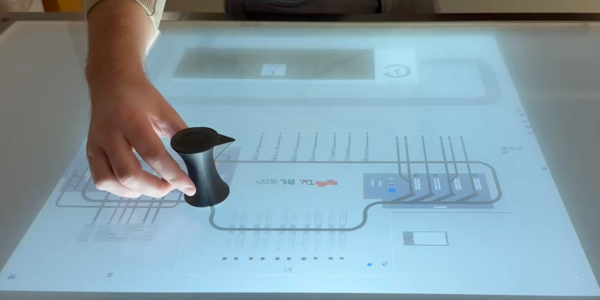Sustainability is one of the most pressing challenges of our time. Universities play a key role, as they not only convey knowledge but also foster thinking and action skills that enable sustainable societal transformation. But how can university lecturers specifically develop these competencies and apply them in their teaching? This is where the Certificate „Education for Sustainable Development” (ESD Certificate) comes in - an innovative continuing education program developed by the Alliance for Sustainable Universities in Austria.
A continuing education program with vision
The ESD Certificate was specially designed for university instructors to promote the broad integration of sustainability topics into teaching. Its goal is to enable faculty from all disciplines to align their teaching with the principles of sustainable development.
The program is based on the experiences and insights of a series of workshops conducted by the Working Group on Education for Sustainable Development between 2019 and 2020 at several alliance universities. In these workshops, instructors were able not only to learn fundamental sustainability concepts and didactic approaches but also to adopt interdisciplinary and transdisciplinary perspectives that are essential for addressing complex societal problems (cf. Hübner et al., 2020; Risopoulos-Pichler et al., 2022).
Sustainability as an integral part of teaching
The ESD Certificate program equips instructors with key competencies such as system thinking, action orientation, and critical reflection on their own discipline in the context of sustainable development. It is not just about incorporating sustainability topics into curricula, but also about promoting transformative learning processes. These enable students to actively contribute to solutions for global challenges and adopt a cross-cultural perspective (cf. Hübner et al., 2020; Hübner et al., 2021; Risopoulos-Pichler et al., 2022).
"TU Graz, as an institution of scientific research and teaching, plays a central role in shaping societal developments and engaging in research-based examination of the major challenges of our time. In my view, Education for Sustainable Development (ESD) plays a key role in research-driven teaching. I understand ESD not just as knowledge transfer, but as enabling students to take responsibility for sustainable development by learning to think systemically about complex problems, evaluate them, and develop their capacity for action and design. ESD allows the university to fulfill its societal responsibility and to scientifically accompany and actively promote the necessary transformation toward a sustainable future." - Dominik Ruffeis, Lecturer of the Workshop “Teaching for a Sustainable Future”
A central part of the program is the concept of “transformative learning", which aims to change patterns of thinking and action. This approach encourages a profound engagement with the values and goals of sustainable development and creates space for innovative, interdisciplinary learning (cf. Singer-Brodowski, 2016; Hübner et al., 2020; Hübner et al., 2021; Risopoulos-Pichler et al., 2022).
"I find it very essential at this time to dedicate sufficient attention to this topic so that we can shape the world of tomorrow well and, above all, educate our students accordingly. I myself contribute to SDG 4, sustainable education. Open Educational Resources (OER) are a key long-term component for high-quality and, above all, sustainable education - for today’s and tomorrow’s knowledge society." - Martin Ebner, Lecturer of the Workshop on Open Educational Resources (OER)
A program for the future
The ESD Certificate program not only contributes to the personal and professional development of university instructors but also has the potential to transform the higher education landscape sustainably. In the long term, it aims for the widespread integration of sustainability across all degree programs. Strengthening a network of instructors dedicated to sustainability also promises more intensive collaboration and the exchange of best practices within and between universities (cf. Hübner et al., 2020; Hübner et al., 2021; Risopoulos-Pichler et al., 2022).
Why the ESD certificate?
The importance of education for sustainable development has already been highlighted in the United Nations’ Sustainable Development Goals (SDGs, Agenda 2030), especially Goal 4.7: "Education should empower people to acquire the knowledge and skills for sustainable development, global citizenship, and cultural diversity." With the ESD Certificate, Austria’s higher education landscape is taking an important step toward meeting this goal and positioning universities as pioneers for a future-oriented society.
Further information and sources
- Website of the certificate: https://nachhaltigeuniversitaeten.at/zertifikat/ (last access: 15 September 2025)
- Podcast about the topic (in German): https://telucation.tugraz.at/podcast-22-ruffeis/ (last access: 15 September 2025)
- Hübner, R., Mayr, R. & Risopoulos-Pichler, F. (2021): Etablierung von BNE Weiterbildungsprogrammen für Hochschullehrende an Universitäten und Hochschulen. In: Allianz Nachhaltige Universitäten in Österreich (Hrsg.): UniNEtZ-Optionenbericht. Von den Optionen zur Transformation. Österreichs Handlungsoptionen für die Umsetzung der UN-Agenda 2030 für eine lebenswerte Zukunft. UniNEtZ - Universitäten und Nachhaltige Entwicklungsziele, Vienna. Online available: https://www.uninetz.at/optionenbericht_downloads/SDG_04_Option_04_11.pdf (last access: 15 September 2025)
- Hübner, R.; Weber, M.; Lindenthal, Th.; Rauch, F. (2020): Für Nachhaltigkeit bilden? Bildung für Nachhaltige Entwicklung für Hochschullehrende an Universitäten in Österreich. In: GAIA 29/1, S. 70-72. Online available: https://doi.org/10.14512/gaia.29.1.17 (last access: 15 September 2025)
- Risopoulos-Pichler, F.; Rauch, F.; Hübner, R.; Salicites, K.; Wlasak, J. (2022): (Weiter)Bildung und nachhaltige Entwicklung für Hochschullehrende Neues Zertifikat für Bildung und Nachhaltige Entwicklung (BuNE-Z). In: GAIA 31/1, S. 54–56. Online available: https://doi.org/10.14512/gaia.31.1.13 (last access: 15 September 2025)
- Singer-Brodowski, M. (2016): Transformative Bildung durch transformatives Lernen? Zur Notwendigkeit der erziehungswissenschaftlichen Fundierung einer neuen Idee. In: Zeitschrift für internationale Bildungsforschung und Entwicklungspädagogik 39/1, S. 13-17. Online available: https://doi.org/10.25656/01:15443 (last access: 15 September 2025)
- Vereinte Nationen (2015): Transformation unserer Welt: Die Agenda 2030 für nachhaltige Entwicklung. Resolution der Generalversammlung. https://www.un.org/german/sites/default/files/2024-09/ar70001.pdf (last access: 15 September 2025)
![[Translate to Englisch:] [Translate to Englisch:]](https://www.tugraz.at/fileadmin/_processed_/5/3/csm_BNE_Titelbild_2zu1_69e3173aef.jpg)




![[Translate to Englisch:]](https://www.tugraz.at/fileadmin/_processed_/5/3/csm_BNE_Titelbild_2zu1_48cb95ea58.jpg)


